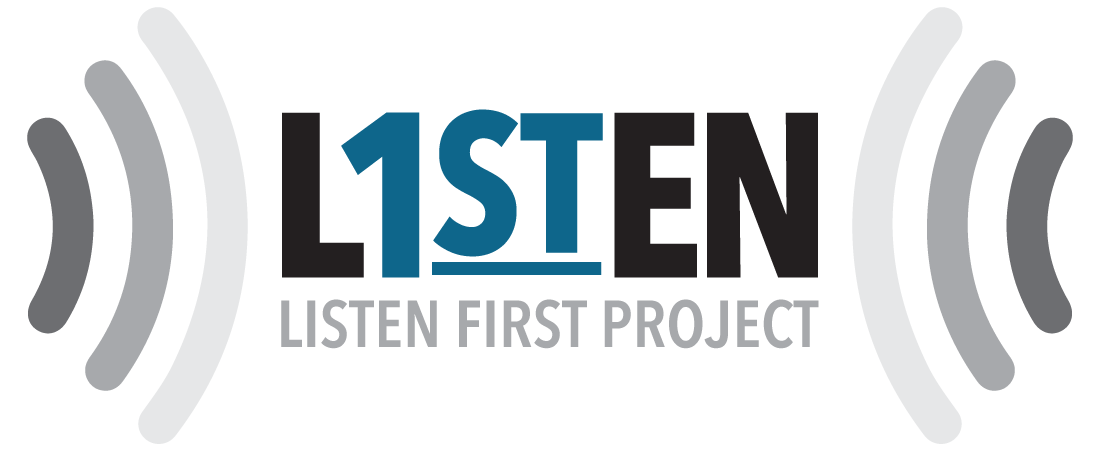At what point do you stop trying to listen to people who are actively oppressing you and others? This was the question I was asked during a recent conversation about the limits of listening. It’s a common theme I hear from advocates who are concerned about the “listen first” approach. Underneath the question lies assumptions and legitimate concerns that must be addressed directly so we can listen first without fear.
There’s concern that by listening you are validating or platforming a perspective (you’re not). That it precludes other forms of advocacy and civil disobedience (it doesn’t). Or that listening to those causing suffering is not worthwhile because you already know what they have to say (you don’t). There is concern that perhaps it doesn’t matter what they say because what matters is they’re wrong and they’re not going to change. We feel that instead that time should be spent listening to, comforting, and fighting for victims (or at least posting on social media).
It’s also painful. It’s hard to understand how a fellow human being could be so deluded or evil. It’s frustrating, isolating, and a breeding ground for cynicism.
Fortunately, listening first to understand is not just the right thing to do to rebuild relationships, but it’s also the smart thing to do to fight for justice and change minds. Putting aside the possibility that by listening you could discover all the ways that you are wrong (that would be a bridge too far), when you understand somebody’s worldview from their perspective, you learn how they came to their beliefs and how they could be persuaded. Further, the sincere effort of listening and building trust in relationships across difference is a precursor to changing minds. In other words, by listening first to understand, you will not only know what could be said to have an impact -- you will be who needs to say it.
At what point do you stop trying to listen to people who are actively oppressing you and others?
Never.

